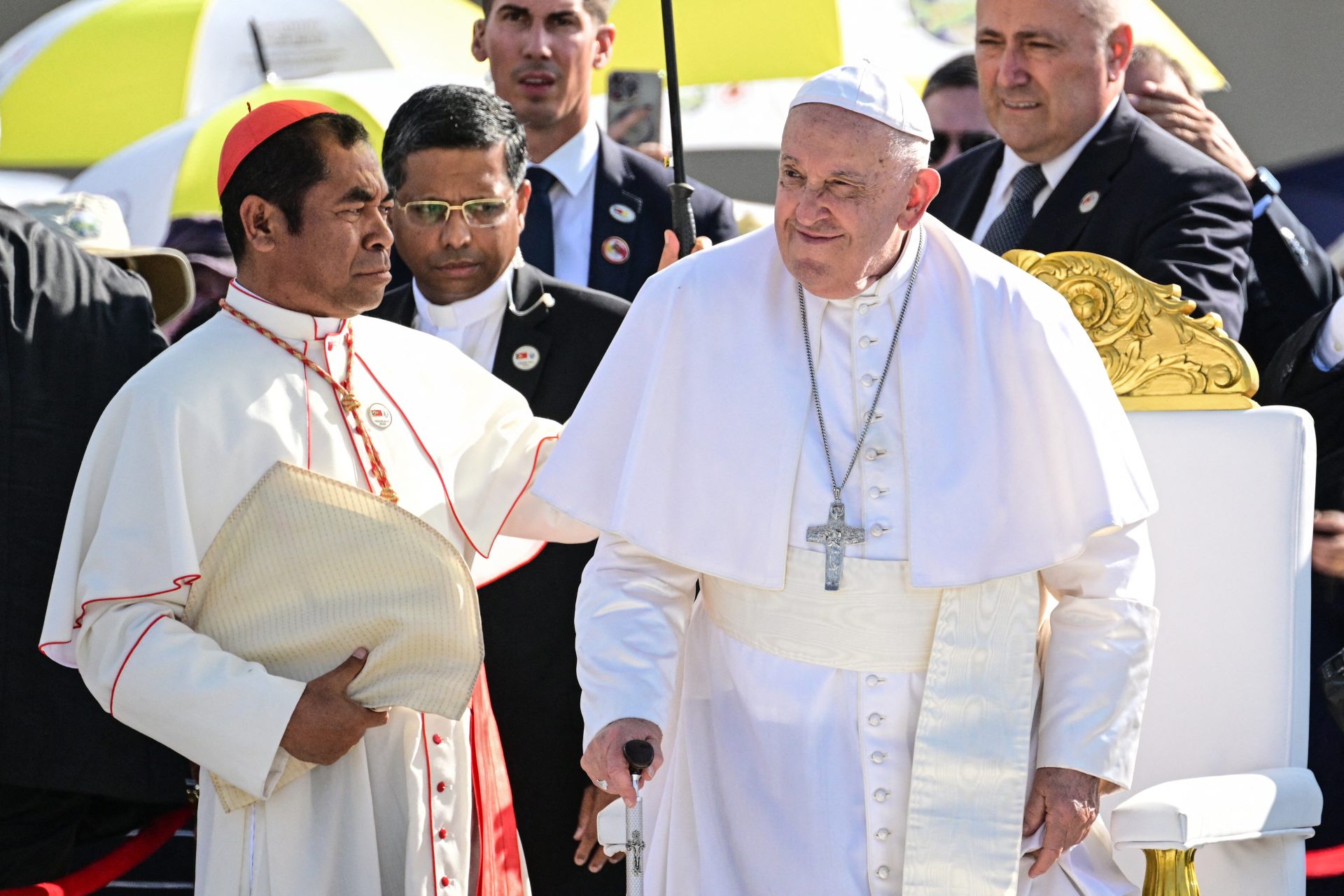Prime Minister Kay Rala Xanana Gusmão of Timor-Leste described Pope Francis as “a respected figure and a positive image in the world” and highlighted the late pontiff’s unwavering commitment to peace, the poor, and the marginalized.
Speaking to the media on April 24, 2025, upon his return to Dili from Melbourne, Australia, the Prime Minister said he had been informed of the Pope’s passing by the President of the Republic via phone while still overseas.
In response, the Timorese government declared seven days of national mourning and ordered national flags flown at half-mast, according to the Archdiocese of Dili.
“When something like this happens, we have to sign the official book of condolences for the Pope’s death and deliver it to the Holy See,” said Gusmão at the Nicolau Lobato International Airport.
“Even though I have just arrived and was not physically present, members of the government, parliamentarians, and the faithful have already signed it,” he added.
Gusmão called Pope Francis “a prominent figure for all people,” and praised him for his lifelong encouragement of people “to love everyone, especially those who are marginalized.”
“We are all saddened by the news of Pope Francis’ death. He is a Pope deeply appreciated by the whole world for his courage in promoting human fraternity,” he said.
“He always raised his voice against war and called on those who wage war to think more about those who suffer—because it is not they who die, but other people,” he added.
The Prime Minister recalled that before his death, Pope Francis had condemned the violence in Gaza, Ukraine, and Palestine, and questioned why international law was inconsistently applied.
“International law is applied in the case of Ukraine but not in Palestine—because of the vested interests of powerful nations who do not want to acknowledge the innocent lives lost, the children who die,” Gusmão said.
Prime Minister Gusmão emphasized that Pope Francis embodied active moral leadership within the Church, engaging with societal issues beyond prayer and liturgical duties.
He said the Pope’s attention to moral, political, and social concerns made him a widely respected and admired global figure.
The tribute followed just months after Pope Francis made a historic Apostolic Journey to Timor-Leste from 9 to 11 September 2024—his first-ever visit to the predominantly Catholic Southeast Asian nation.
The Pope’s visit drew massive crowds, with over 600,000 faithful reportedly attending the main Eucharistic celebration at the Esplanade of Tasi Tolu near Dili.
During his final public event in Timor-Leste, Pope Francis met with 3,000 young people at the Convention Centre in Dili, encouraging them to embrace the values of freedom, commitment, and fraternity. “Freedom is not doing what you want,” he told them, “but the opportunity to do good.”
Reflecting on that visit, Gusmão recalled how the Pope left “a precious and inspiring message” to Timorese of all backgrounds.
Gusmão recalled that during his visit, Pope Francis addressed various sectors of Timorese society—including the Muslim community, young people, and national leaders—leaving a message that highlighted the value of the Timorese people as the nation’s true wealth.
He noted that the Pope specifically urged the younger generation, especially those who have gained education and financial stability, to show love and respect for their parents.
“I have been following all of the ceremonies at the Vatican through the media,” Gusmão added. “Everyone is expressing sorrow over the loss of such a great Church leader.”







